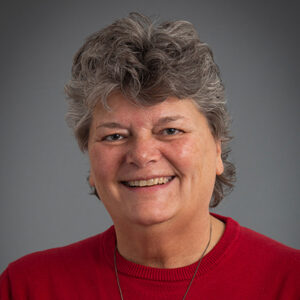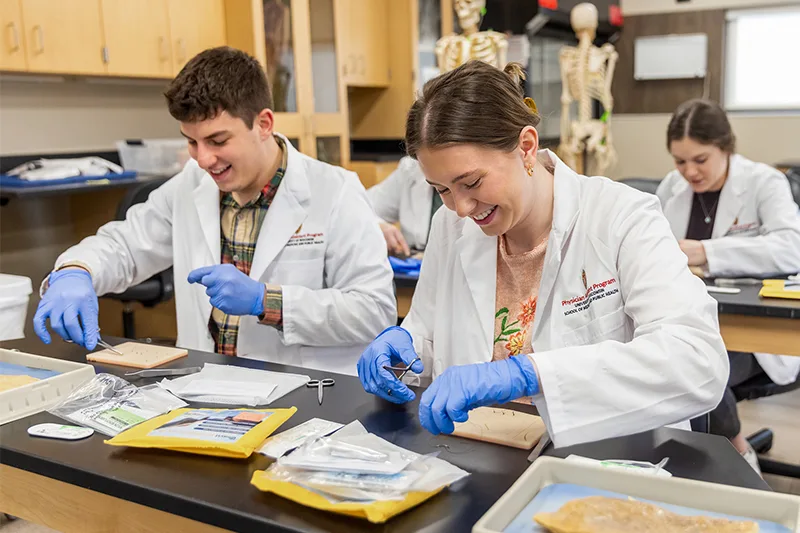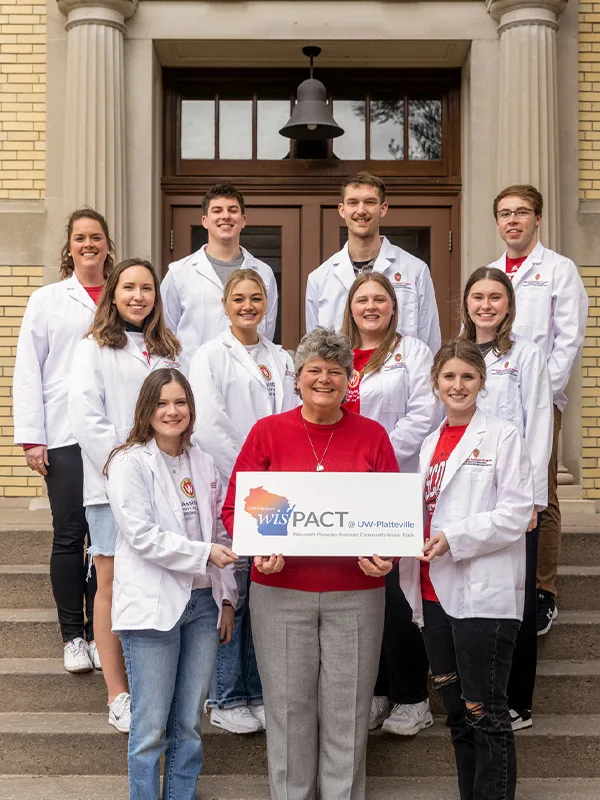Snyder notes that PA education is in the midst of a significant growth spurt. The number of programs is expanding, and the number of students in existing programs is growing. Wisconsin alone has five PA programs, and the United States has 287 accredited programs.
In addition, the profile of PA education is evolving.
“Advancement of technology and active learning strategies help PA students learn the critical-thinking skills necessary for application of course material,” Snyder points out. “PA education has become true competency-based education. It is now very data-driven.”
SMPH’s overall emphasis on scholarship, service, and public health positions students in the Master of Physician Assistant Studies for success in their professional practices. Among many measures, the PA program’s ranking in the nation’s top 30 in the most recent U.S. News & World Report analysis speaks to its success in preparing students.
And for Snyder, the successful launch of wisPACT@UW-Platteville represents a milestone.
“With the launch of the program at UW-Platteville, I feel I have come full circle because I joined the faculty of the UW-Platteville biology department right after I earned my graduate degree,” she reflects. She left Platteville when she moved to Madison for her PA studies. Later, when she was practicing in Janesville, Wisconsin, she was invited to teach neuroanatomy, neurophysiology, and neurology in SMPH’s PA program, so she moved back to Madison. Now, her extensive academic and leadership experiences have contributed to a new option for students in Platteville.
“It’s a big circle,” Snyder notes, “but it has been a full one.”




